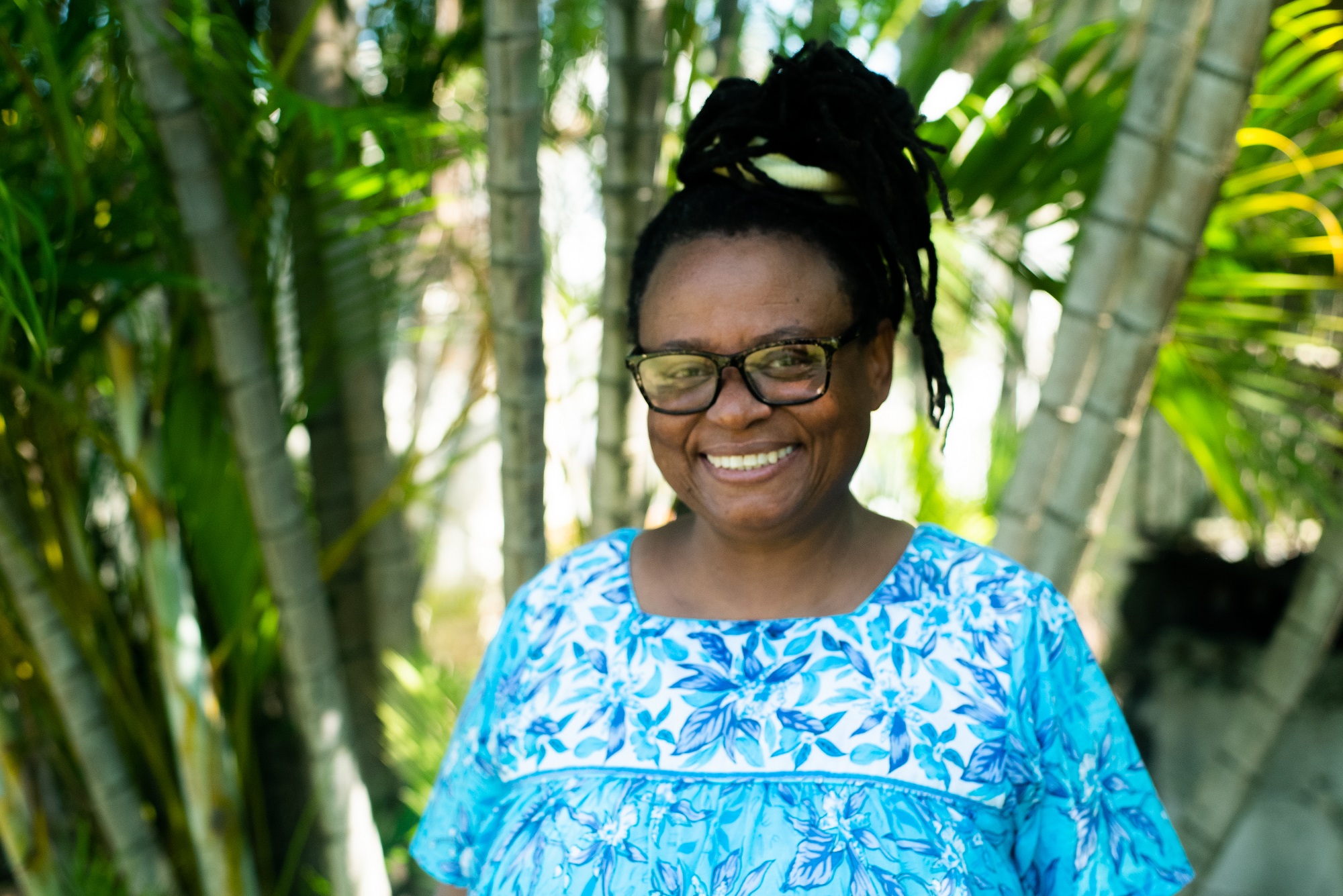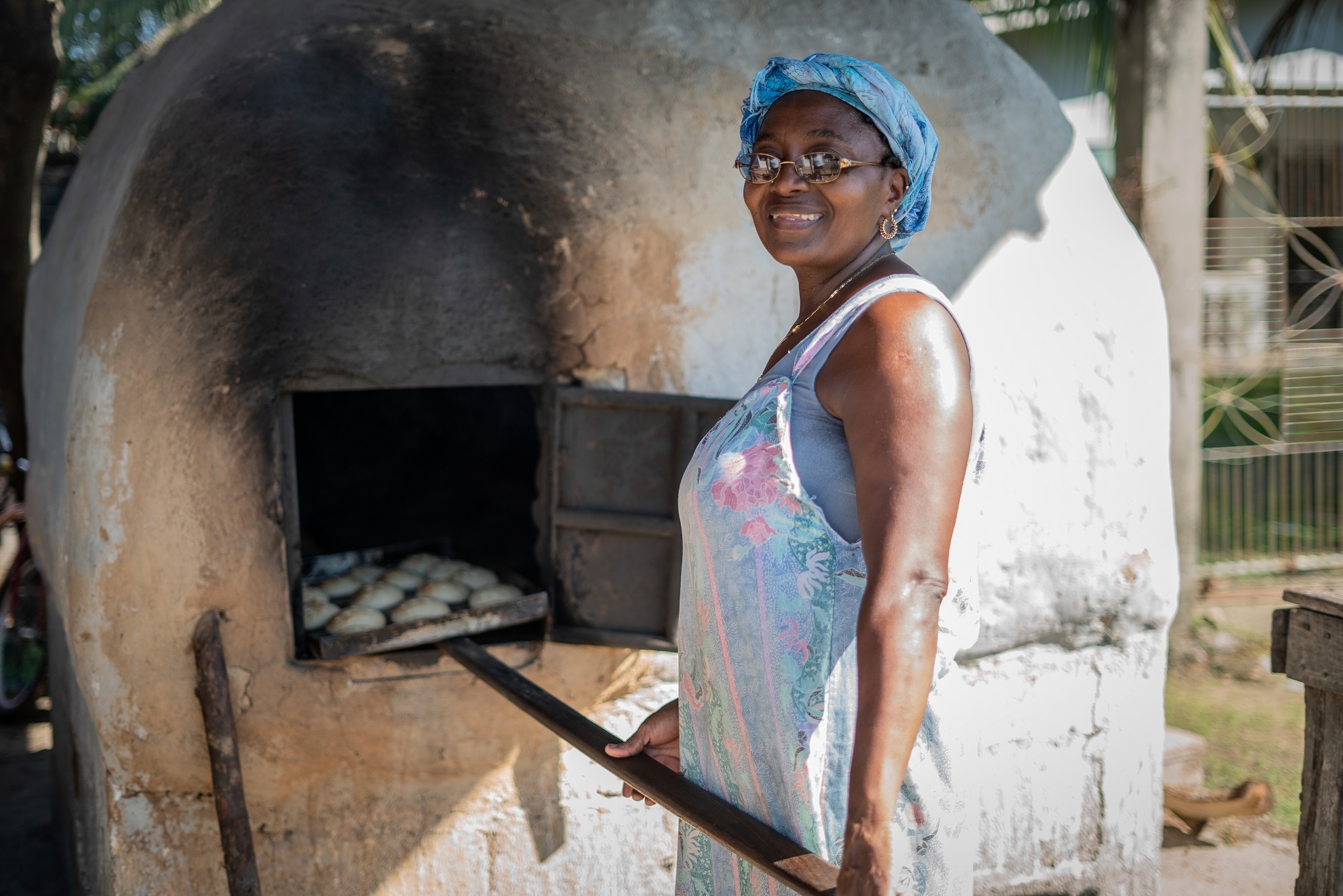This article was published more than 5 years ago.
This article is part of a series featuring inspiring stories of local action #fromthefrontlines of COVID-19 in the Global South. For more, visit our COVID-19 page and follow us on Facebook and Twitter.
A new study published by the World Food Program and more than a dozen other organizations predicts that up to 265 million people could reach the brink of starvation by the end of 2020, as drivers of global hunger are complicated by the outbreak of COVID-19.
Food security—reliable access to sufficient amounts of nutritious food—is an essential human right that many Fund-backed organizations work to ensure for their communities. Those efforts are increasingly critical as COVID-19 presents new challenges for marginalized people and their ability to access food.
One group pioneering new ways to feed hungry communities is OFRANEH, an organization working to support the goals of the Garifuna social movement in Honduras. The Garifuna are Afro-indigenous people who live along the Honduran coast.
Garifuna communities have struggled with food insecurity in the past, as large-scale development projects encroach on their farmland. Additionally, foreign-owned food production companies pressure local farmers to purchase seedlings that result in larger yields for a single growing season, but unsustainable and less nutritious crops year-after-year.
Through years of collective action and successful resistance to these exploitive development projects and unsustainable agricultural practices, the Garifuna have developed new ways of ensuring their communities have access to food. As COVID-19 disrupts supply chains and drives up food prices, these innovative solutions are offering critical relief to Garifuna communities facing hunger.

“Just as we managed to survive the extermination and exile at the hands of the British, in addition to resisting the yellow fever epidemic, and the dictatorships imposed by the Nationalist party in Honduras, we will survive COVID-19,” says Miriam Miranda, OFRANEH’s elected leader.
When the pandemic hit Honduras, OFRANEH was able to step in and provide support faster than their own government, whose assistance programs rarely include the Garifuna and other marginalized communities, even during a state of emergency.
Within days, OFRANEH established the olla communitaria, or “community pot,” in nearly 20 Garifuna communities. This builds on a long-standing tradition of communal eating that was borne out of generations of economic hardship and also used for community-wide celebrations. Their solution of sharing food resources and prepared meals provides a physically distanced way for community members to ensure everyone has enough to eat.

Beyond ensuring everyone in their communities has access to food, OFRANEH has also coordinated a public health response: Community members are sewing fabric masks, making and distributing hand sanitizer, and educating people on how to protect themselves from the virus. They are also conducting specific outreach to the elderly, as well as providing medicinal tea and information on herbs and nutrition that can help boost the immune system.
While OFRANEH has successfully pivoted to provide much-needed immediate support to their communities, they continue to address and advocate against the systemic inequality and corruption that makes Garifuna people, and other minority groups, more vulnerable to the effects of a pandemic in the first place. To this end, they are connecting with other groups serving indigenous communities to help maximize complementary grassroots COVID-19 responses and speaking out via the media about the need for greater transparency in how aid and emergency resources are distributed throughout Honduras.
The Fund is proud to stand by OFRANEH as they provide critical emergency relief to their communities and continue to tackle the underlying issues of inequality that affect their communities.